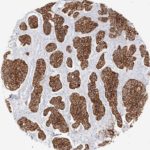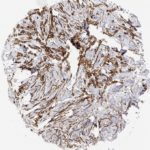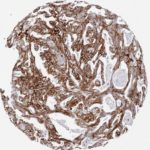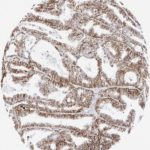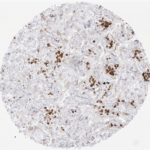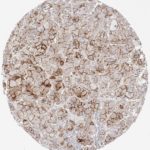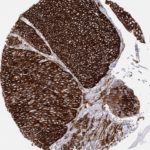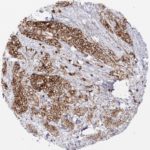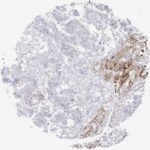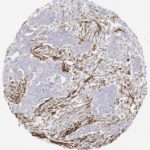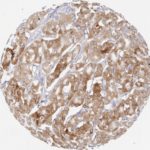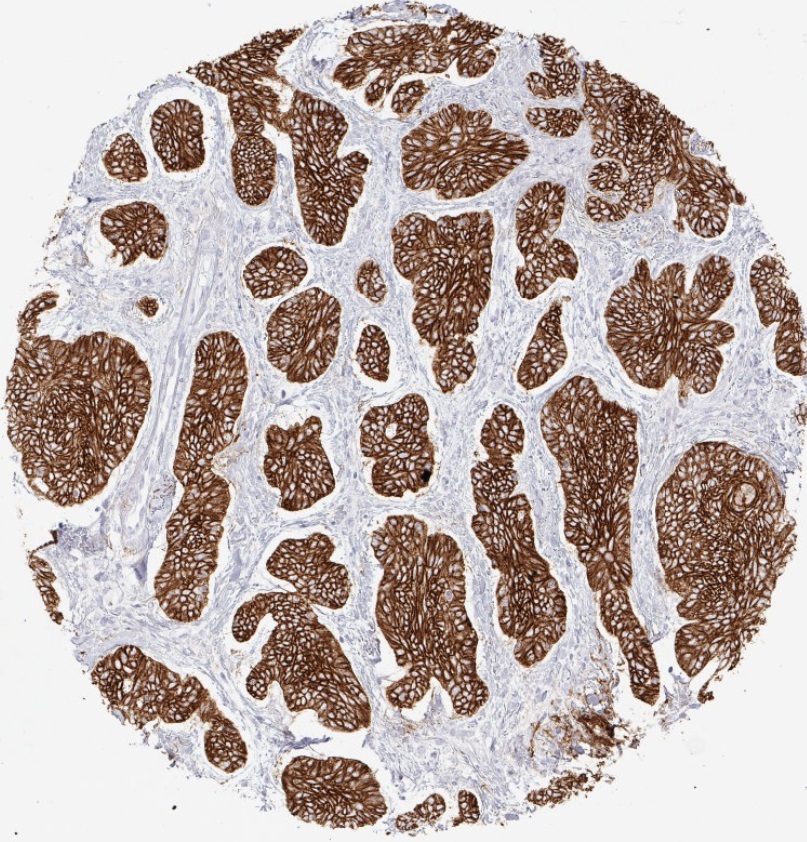Cluster of differentiation 138 (CD138), also known as Syndecan-1, is a transmembrane glycoprotein, (heparin sulphate proteoglycan) expressed on the surface of plasma cells within the hematopoetic system and on the surface of mature epithelial cells. CD138 is composed of a single chain transmembrane core protein (30,5 KDa, comprising a short cytoplasmic domain, a transmembrane domain, and a long extracellular domain) and five covalently attached glycosaminoglycan.
In diagnostic surgical pathology, antibodies against CD138 are commonly used to identify and quantitate plasma cells. Syndecan-1 (CD138) is a cell surface protein with relevance for cell-cell and cell-matrix interaction. In normal tissues, CD138 is expressed on plasma cells but also in various epithelial cell types. CD138 is also expressed in various cancers. In several tumor types CD138 expression levels were described to be prognostically relevant. CD138 expression in cancer is of potential clinical interest. Antibody-based drugs targeting CD138 in plasmocytomas are being evaluated in clinical trials. In preclinical studies, anti-CD138 antibodies were also effective against triple negative breast cancer and melanoma cells.
1.
Kind S. et al. (2019) A shift from membranous and stromal syndecan-1 (CD138) expression to cytoplasmic CD138 expression is associated with poor prognosis in breast cancer. Mol. Carcinogenesis, 58(12):2306-2315. doi: 10.1002/mc.23119
2.
Kind, S. et al. (2019) Prevalence of Syndecan-1 (CD138) Expression in different kinds of human tumors and normal tissues. Disease Markers, Volume 2019, Article ID 4928315. doi.org/10.1155/2019/4928315

